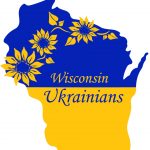BBB Tip: Don’t Be Double-Crossed by Nintendo Animal Crossing Scam
Milwaukee, Wis. – We’re all online more these days, and many people, adults and children alike, have sought solace in the virtual worlds of online video games during this time of social isolation. Video games, such as the recently released “Animal Crossing: New Horizons,” are giving area consumers a way to interact with friends, family, and strangers without the danger of contracting the coronavirus. Yet while players can stay healthy in virtual worlds, there are other risks users must consider.
Animal Crossing is a social simulation video game series, developed and published by Nintendo (Nintendo of America is a BBB Accredited Business). In Animal Crossing, players enhance their homes by decorating and expanding their residences. Players also help to develop a town filled with human-like animals, representing villagers and visitors. The Animal Crossing series is known for its open-ended gameplay, which consists of the main character carrying out various activities, such as fishing, bug catching, and fossil hunting, and then selling those collected items for in-game money called “bells.”
The newest rendition of the game continues and expands upon the previous versions’ ability to support multiplayer activities. In a little over a month since its initial release, Animal Crossing has become a hit with many players, and there are many Facebook groups dedicated to the game. With so many strangers coming together to arrange virtual town visits, reports of scams have surged online. While most players may be respectful and kind, a few bad eggs have ruined the online gaming experience for others.
Beware of “Real Life” Transactions – Scammers can and have created listings on eBay or in Facebook groups, advertising wanted characters or items for sale. Once you pay with your own money, not in-game currency, the scammer disappears, and you’re left without your purchased items.
Know Your Friends – Set boundaries with players you interact with online. Only provide travel codes (called DODO codes) or send “best friend” requests to people you know and trust in real life. The “best friend” designation gives players a greater ability to make potentially unwanted changes to your town.
Create a Safe Space – If you must invite a stranger to your island, fence off areas that you don’t want a visitor to interact with – such as flowers, fruits, and other objects you don’t want stolen.
For more information: If you’ve spotted a scam (whether or not you’ve lost money), report it to BBB.org/ScamTracker. You can also report unethical advertising at BBB.org/ad-truth. Your reports can help others avoid falling victim to scams. You can also visit Scam Tracker to view the latest reported scams in your neighborhood or across North America.
More on coronavirus-related scams at BBB.org/coronavirus.
For more information or further inquiries, contact the Wisconsin BBB at www.bbb.org/wisconsin, 414-847-6000 or 1-800-273-1002. Consumers also can find more information about how to protect themselves from scams by following the Wisconsin BBB on Facebook, Twitter, Instagram and YouTube.
ABOUT BBB: For more than 100 years, the Better Business Bureau has been helping people find businesses, brands and charities they can trust. In 2018, people turned to BBB more than 173 million times for BBB Business Profiles on more than 5.4 million businesses and Charity Reports on 11,000 charities, all available for free at bbb.org. There are local, independent BBBs across the United States, Canada and Mexico, including BBB Serving Wisconsin which was founded in 1939 and serves the state of Wisconsin.
NOTE: This press release was submitted to Urban Milwaukee and was not written by an Urban Milwaukee writer. While it is believed to be reliable, Urban Milwaukee does not guarantee its accuracy or completeness.





















